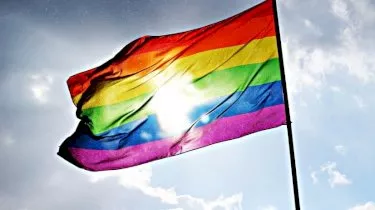Retirement
How much is same-sex marriage worth?
Should same-sex marriage become legalised in Australia, the economy can expect an injection of $650 million, more than five times the cost of the postal vote.
How much is same-sex marriage worth?
Should same-sex marriage become legalised in Australia, the economy can expect an injection of $650 million, more than five times the cost of the postal vote.

According to senior economist at ANZ, Cherelle Murphy, the dollar benefit of legalised same-sex marriage would be “at least $650 million in the first 12 months” based on an average wedding spend of $54,000.
Ms Murphy added that that figure related to wedding spending alone. The postal vote that is currently being rolled out has a $122 million price tag and the result is due 15 November.
Noting that an outcome on same-sex marriage in Australia is likely by the end of the year, Ms Murphy said: “While the macroeconomic implications of this [$650 million] sum are minuscule, for some sectors the impact will be more meaningful.
“If marriage equality were legislated, we believe same-sex weddings would have a positive, though very small, impact on economic activity and confidence.”

Ms Murphy noted that the number of same-sex couples living together rose by 39 per cent between 2011 and 2016 and further: “There were more than four times the number of same-sex couples recorded 20 years ago; from 0.3 per cent of total couples in 1996 to 0.9 per cent in 2016.”
In a footnote, the analyst added that the percentage of same-sex attracted or bisexual employees at ANZ bank grew from 3.3 per cent in 2015 to 4.8 per cent in 2016.
Ms Murphy’s recent note was a follow-up to an article she released in October 2015. At that time, she argued that the dollar value would be $500-550 million based on an average 2015 wedding spend of $50,000.
She explained: “In an economy that is challenged for fresh sources of domestic demand, a rush of same-sex weddings would have a small positive impact on activity and confidence, particularly in NSW, Victoria, ACT, and the Northern Territory.
“Longer term, it may also have a positive impact on growth via the beneficial impact on individuals’ wellbeing and from Australia gaining international recognition for its anti-discriminatory and socially inclusive posture.”
Further, same-sex weddings would boost the small business sector and lift confidence through added demand. There would also be a dollar benefit of same-sex couples getting married “back home” rather than overseas and government would increase revenues by conducting more ceremonies.
“If marriage equality legislation were successfully legislated in Australia, there would be an economic benefit from increased expenditure on weddings, honeymoons, and the potential improved image of Australia as a more tolerant and progressive country.
“We could also envisage Australia becoming a more attractive destination for businesses, with several corporations who support marriage equality preferring to do businesses here and in New Zealand rather than in other economies in the region. Already, a number of employers grant full recognition to the same-sex marriages of their employees and customers.”
But is there a dollar benefit for individual couples?
The government passed legislation in 2008 which expanded the definitions of ‘spouse’ and ‘children’ to include same-sex couples and their children.
As such, the “really bad” inequalities same-sex couples faced in terms of income tax and superannuation have been “cleaned up”, said economist and commentator, Nicholas Gruen of Lateral Economics.
He said that while gay tourism is a “big deal” and can imagine there being more wedding parties in the instance of legalised same-sex marriage, he doesn’t predict there will be a big impact.
While there’ll be a “rush” of weddings if it’s legalised, Mr Gruen said: “I think the arguments for and against — and I don't know too many arguments against — are not really economic, but social and in terms of justice.”
The Australian postal vote on whether the law should be changed to allow same-sex couples to marry is currently being rolled out, with 27 October the final day to submit votes.

Retirement Planning
The retirement mortgage squeeze: how one bank turned a demographic risk into a strategic edge
An increasing share of Australians are entering their 60s still paying off mortgages, just as living costs and interest charges stay stubbornly high. For banks, super funds, retailers and ...Read more

Retirement Planning
The retirement mortgage crunch: what it means for banks, retailers and policy in Australia
A growing share of Australians are carrying mortgages into their 60s and beyond, colliding with persistent cost-of-living pressures and a “slow grind” macro outlook. This isn’t just a social story; it ...Read more

Retirement Planning
Majority of Australians still unsure about their retirement prospects
A recent survey conducted by MFS Investment Management® has shed light on the ongoing uncertainty faced by many Australians regarding their retirement plans. Despite a slight increase in confidence ...Read more

Retirement Planning
Wage growth steadies as businesses navigate economic challenges
In a sign that the Australian labour market may be finding equilibrium, wage growth has stabilised this quarter, according to Employment Hero's latest data. This development comes as employers ...Read more

Retirement Planning
Simplified retirement advice: Key to overcoming behavioural biases, experts say
In a bid to enhance retirement outcomes for Australians, a recent whitepaper by Industry Fund Services, in collaboration with Challenger, has highlighted the importance of simplifying retirement ...Read more

Retirement Planning
Rest launches Retire Ready digital experience to empower members approaching retirement
Rest, one of Australia’s largest profit-to-member superannuation funds, has unveiled a new digital experience aimed at making retirement preparation simpler and more personalised for its members. Read more

Retirement Planning
New Framework Aims to Bridge Australia’s Financial Advice Gap
A ground-breaking framework introduced by the Actuaries Institute promises to revolutionise how Australians access financial support, potentially transforming the financial wellbeing of millionsRead more

Retirement Planning
The downsizer dividend: how Australia’s ageing shift will reshape property, finance and AI strategy
Downsizing is moving from a personal milestone to a system-level lever for Australia’s housing market. As policymakers court reforms and agents eye fresh listings, the real profit pools will accrue to ...Read more

Retirement Planning
The retirement mortgage squeeze: how one bank turned a demographic risk into a strategic edge
An increasing share of Australians are entering their 60s still paying off mortgages, just as living costs and interest charges stay stubbornly high. For banks, super funds, retailers and ...Read more

Retirement Planning
The retirement mortgage crunch: what it means for banks, retailers and policy in Australia
A growing share of Australians are carrying mortgages into their 60s and beyond, colliding with persistent cost-of-living pressures and a “slow grind” macro outlook. This isn’t just a social story; it ...Read more

Retirement Planning
Majority of Australians still unsure about their retirement prospects
A recent survey conducted by MFS Investment Management® has shed light on the ongoing uncertainty faced by many Australians regarding their retirement plans. Despite a slight increase in confidence ...Read more

Retirement Planning
Wage growth steadies as businesses navigate economic challenges
In a sign that the Australian labour market may be finding equilibrium, wage growth has stabilised this quarter, according to Employment Hero's latest data. This development comes as employers ...Read more

Retirement Planning
Simplified retirement advice: Key to overcoming behavioural biases, experts say
In a bid to enhance retirement outcomes for Australians, a recent whitepaper by Industry Fund Services, in collaboration with Challenger, has highlighted the importance of simplifying retirement ...Read more

Retirement Planning
Rest launches Retire Ready digital experience to empower members approaching retirement
Rest, one of Australia’s largest profit-to-member superannuation funds, has unveiled a new digital experience aimed at making retirement preparation simpler and more personalised for its members. Read more

Retirement Planning
New Framework Aims to Bridge Australia’s Financial Advice Gap
A ground-breaking framework introduced by the Actuaries Institute promises to revolutionise how Australians access financial support, potentially transforming the financial wellbeing of millionsRead more

Retirement Planning
The downsizer dividend: how Australia’s ageing shift will reshape property, finance and AI strategy
Downsizing is moving from a personal milestone to a system-level lever for Australia’s housing market. As policymakers court reforms and agents eye fresh listings, the real profit pools will accrue to ...Read more








